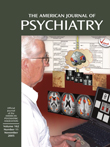Heart Transplantation in a Schizophrenia Patient
To the Editor: Mr. A, in the clinical case conference by Stephanie M. Le Melle, M.D., M.S., and Charles Entelis, M.D. (1), is one of many patients with schizophrenia, schizoaffective disorder, and bipolar disorder who have undergone heart transplantation at New York Presbyterian Hospital–Columbia University Medical Center. The case conference provided an opportunity to reflect on what psychiatric consultants to heart transplant programs have learned about helping patients with severe mental illness and other psychosocial risk factors achieve successful heart transplant outcomes.
First, some psychiatric disorders and psychosocial variables do have an effect on transplant outcomes. Recent substance abuse, severe personality disorders, poor global function, and an avoidant coping style predict worse outcomes (2, 3). Second, in some cases, even high-risk patients can do well with expert management. Third, especially in such cases, good family support is invaluable. Fourth, a longitudinal relationship with the transplant team provides an opportunity to assess and modify psychosocial risks much better than evaluation at a single moment in time. Mr. A was undoubtedly a high-risk patient, but he had the benefit of devoted and expert psychiatric care, time to develop a relationship with his transplant cardiologist, and superb support from his family.
I would demur on one point made in the report. There has been no shortage of previous experiences with the development or exacerbation of psychosis in patients after transplantation who were receiving a high dose of corticosteroid immunosuppressant therapy. The role of steroids in precipitating psychosis and mood disorders in heart transplant recipients has been described repeatedly since the late 1960s (4–6).
As we noted previously (2), the presence of psychosocial risk factors should not be reason to prejudicially deny care; rather, it should stimulate efforts to mitigate these risks to provide the best possible care and outcome.
1. Le Melle SM, Entelis C: Heart transplant in a young man with schizophrenia (clin case conf). Am J Psychiatry 2005; 162:453–457Link, Google Scholar
2. Shapiro PA, Williams DL, Foray AT, Gelman IS, Wukich N, Sciacca R: Psychosocial evaluation and prediction of compliance problems and morbidity after heart transplantation. Transplantation 1995; 60:1462–1466Crossref, Medline, Google Scholar
3. Chacko RC, Harper RG, Gotto J, Young J: Psychiatric interview and psychometric predictors of cardiac transplant survival. Am J Psychiatry 1996; 153:1607–1612Link, Google Scholar
4. Lunde DT: Psychiatric complications of heart transplants. Am J Psychiatry 1969; 126:369–373Link, Google Scholar
5. Kraft IA: Psychiatric complications of heart transplantation. Semin Psychiatry 1971; 3:58–69Medline, Google Scholar
6. Ling MHM, Perry PJ, Tsuang MT: Side effects of corticosteroid therapy. Arch Gen Psychiatry 1981; 38:471–477Crossref, Medline, Google Scholar



